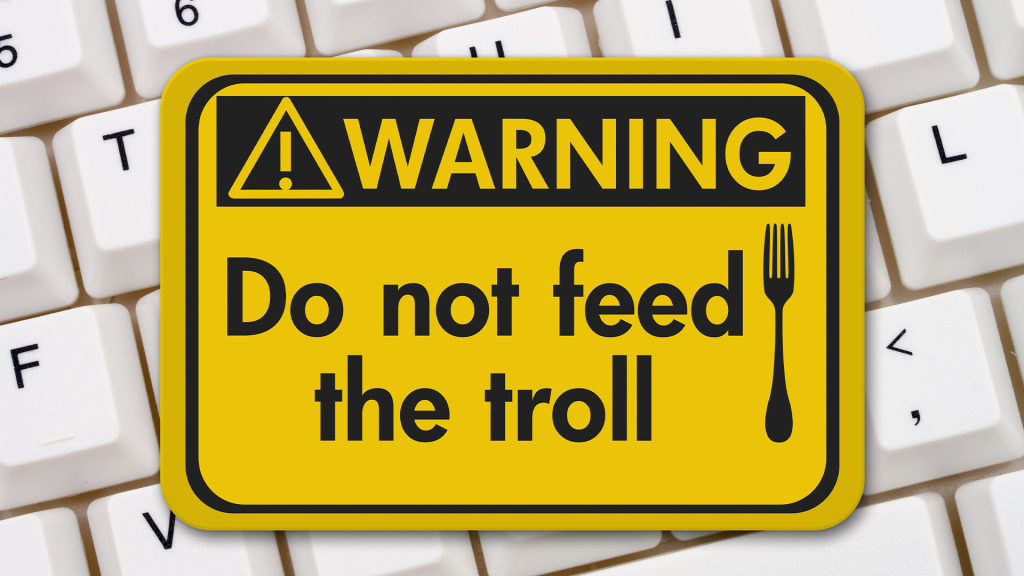No matter how careful or well-intentioned an influencer might be, encountering negative feedback is inevitable in the digital world. Social media, with its instant feedback mechanisms, allows followers to voice their opinions publicly, and sometimes those opinions can be harsh or critical. How influencers manage this feedback can significantly impact their reputation, brand partnerships, and long-term success. Here’s a comprehensive guide on how influencers can handle negative feedback effectively and maintain their credibility.

1. Stay Calm and Don’t React Immediately
When faced with negative feedback, the first instinct may be to respond defensively or react emotionally. However, it’s essential to take a step back before you respond. Emotions can cloud judgment, leading to impulsive reactions that can escalate the situation further.

Why Staying Calm Matters:
- Prevents Escalation: A hasty, emotional response can turn a small issue into a full-blown crisis, attracting more unwanted attention.
- Gives You Time to Reflect: Pausing allows you to think carefully about the criticism and assess whether it’s valid or not.
Action Steps:
- Take a few hours (or even a day) to process the negative feedback before responding.
- Discuss the situation with a trusted peer or mentor to gain an outside perspective.
2. Assess the Feedback Objectively
Not all negative feedback is the same. Some criticism may be constructive and valuable, while other comments may simply be rude or baseless. Assessing the feedback objectively helps you determine the best course of action.

Types of Feedback:
- Constructive Criticism: These comments offer specific suggestions for improvement. They may point out something that went wrong, but they also provide insights on how to fix or avoid the issue in the future.
- Trolling and Hate Speech: These are mean-spirited comments intended to provoke or harm. They often have no real value or constructive input and are best ignored.
- Misinformed Criticism: Sometimes, feedback is based on misunderstandings or incomplete information. It’s important to clarify these situations without sounding defensive.
Action Steps:
- Identify whether the feedback is constructive, trolling, or misinformed.
- Respond only to those that are worth addressing and offer something of value to the discussion.
3. Acknowledge and Apologize (If Necessary)
If the criticism is valid, especially if it involves an honest mistake, it’s important to acknowledge it and apologize sincerely. Ignoring or denying a legitimate issue can damage your reputation, while a genuine apology can show humility and maturity.

Why Apologies Matter:
- Builds Trust: A sincere apology shows that you care about your audience’s concerns and are willing to take responsibility for your actions.
- Prevents Further Damage: A well-timed apology can stop a potential crisis from escalating and spreading across social media platforms.
Action Steps:
- Issue a sincere apology if you were in the wrong. Be specific about what went wrong and how you plan to fix or avoid the issue in the future.
- Avoid using defensive language in your apology. Words like “if” and “but” can make the apology seem insincere.
Example: “I realize that my recent post did not align with the values I usually promote, and for that, I apologize. I’m committed to ensuring this doesn’t happen again and appreciate your honest feedback.”
4. Engage Constructively with Your Audience
After acknowledging the negative feedback, it’s essential to engage with your audience constructively. Show that you’re open to dialogue and willing to make improvements based on their input. Influencers who embrace feedback demonstrate maturity and professionalism.

Why Engagement is Important:
- Demonstrates Responsiveness: Engaging with your audience shows that you’re listening and that you value their input.
- Turns Negative into Positive: By engaging constructively, you can often turn critics into supporters, especially if they feel heard and respected.
Action Steps:
- Respond to comments or messages professionally, thanking people for their feedback and showing that you’re open to learning from the experience.
- For constructive criticism, acknowledge their points and ask for further input on how you can improve.
5. Don’t Engage with Trolls
Not all negative feedback deserves a response. Trolls, or individuals who post inflammatory comments just to provoke a reaction, are not worth engaging with. Responding to trolls can escalate the negativity and attract more attention to the situation than it deserves.

Why Ignoring Trolls is Effective:
- Prevents Escalation: Trolls feed off reactions, and by refusing to engage, you deprive them of the attention they seek.
- Keeps Focus on Positive Interactions: Instead of wasting energy on negative individuals, focus on nurturing relationships with your supportive followers.
Action Steps:
- Use social media features such as “block,” “mute,” or “report” to deal with trolls.
- If the trolling becomes severe or abusive, consider disabling comments temporarily on the post in question.
6. Learn from the Experience
Every instance of negative feedback is an opportunity to grow. Whether the criticism is justified or not, there’s always a lesson to be learned from how the situation was handled.

Why Learning Matters:
- Self-Improvement: Analyzing negative feedback can help you improve your content, communication, or brand approach.
- Future Crisis Prevention: By learning from one experience, you can avoid similar mistakes in the future, reducing the likelihood of recurring issues.
Action Steps:
- Reflect on the feedback you received and determine if any changes to your content, messaging, or engagement strategy are needed.
- Regularly ask your audience for feedback, so you can continue improving and strengthening your connection with them.
7. Use Professional Help When Necessary
If the negative feedback escalates into a larger issue, such as widespread criticism or media attention, it may be beneficial to consult a public relations (PR) professional. A PR expert can guide you in managing the crisis and mitigating the long-term damage to your reputation.

Why PR Support is Valuable:
- Crisis Expertise: A PR professional can help navigate more serious situations and craft appropriate public responses.
- Damage Control: They can help contain the situation before it spirals out of control, minimizing its impact on your brand.
Action Steps:
- Contact a PR expert if the situation feels overwhelming or beyond your control.
- Consider developing a crisis communication plan with the help of a professional to prepare for potential future issues.
8. Continue Creating Content, But Be Mindful
After handling negative feedback, it’s essential to keep producing content but with a more mindful approach. You don’t want to let the situation deter you from your work, but it’s also important to learn from it and apply the lessons going forward.

Why Moving Forward is Key:
- Staying Relevant: Continuing to create content shows resilience and keeps your audience engaged.
- Rebuilding Trust: Thoughtful and improved content can help rebuild any trust or credibility lost during the negative feedback incident.
Action Steps:
- Resume posting content that aligns with your brand values and audience expectations.
- Be mindful of sensitive topics and ensure your content is carefully considered before publishing.

Final Thoughts
Handling negative feedback is a critical skill for influencers navigating the world of social media. By staying calm, assessing feedback objectively, and responding constructively, influencers can turn potentially damaging situations into opportunities for growth. Authentic engagement, sincere apologies when necessary, and a focus on continuous improvement can help influencers maintain their credibility, foster trust with their audience, and successfully manage any crisis that comes their way. Remember, every setback is an opportunity to learn, grow, and come back stronger.


